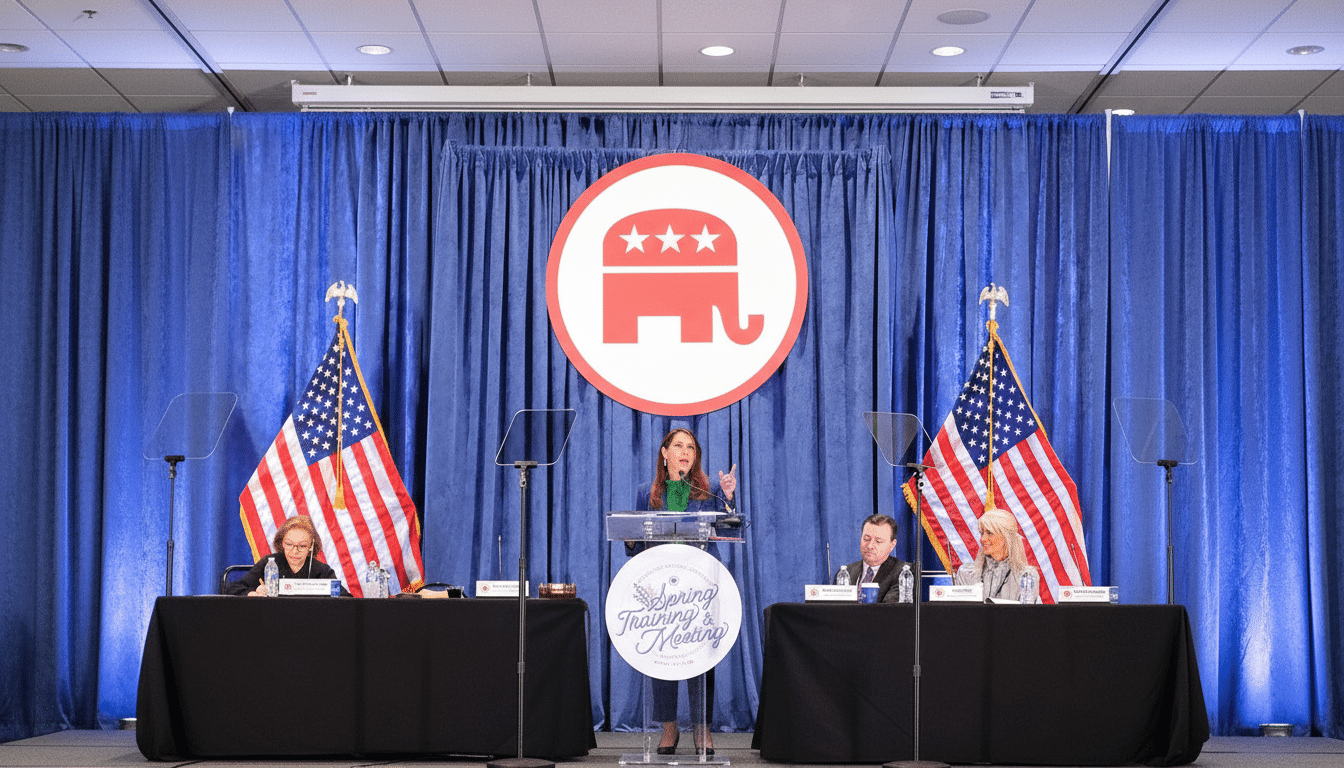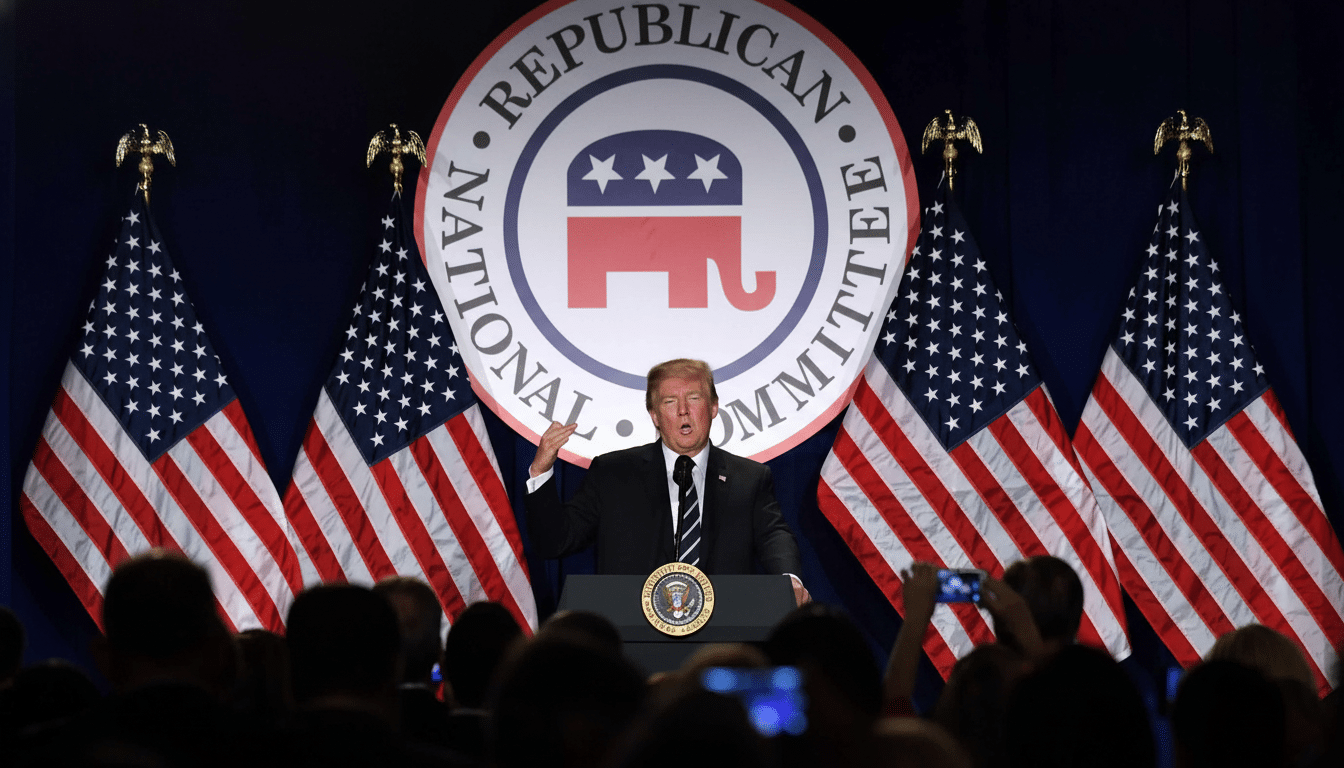What started as fringe meme culture has evolved into a constant flow of AI-generated clips and images posted by marquee Republicans. Donald Trump and many GOP leaders are frequently posting synthetic content that mingles spectacle with distortion, obfuscating satire and political messaging in ways that it’s difficult for audiences to parse and even more difficult for platforms to police.
A Pattern Of AI-Generated Political Memes
Trump’s feeds have for years been choked with highly stylized, obviously concocted images supposing him as warrior or king or action star — quintessential AI slop: shiny, heavy, assembled to be circuit-breakingly viral. While some of the posts are wink-and-nod memes, others stray into misdirection, repackaging news or opponents with manipulated visuals intended to provoke and entertain in equal measure.

And, again, this is not just in one account or in one day. The Republican National Committee leaned into the trend early with an all-A.I.-generated attack ad that imagined a dystopian future, a proof-of-concept for how synthetic scenes can be spun up quickly to pack an emotional punch. The DeSantis campaign’s “War Room” subsequently pushed AI-generated images of Trump hugging Anthony Fauci, a made-for-engagement moment that showed how fake photos can operate as facts once they bounce around beyond social networks.
Researchers who study information operations say the feature is the format. Synthetic media erases the line between parody and persuasion by enabling content to bypass the defenses users throw up when they see traditional political ads. Researchers at the Shorenstein Center and Stanford Internet Observatory have tracked how partisan communities adopt meme-like assets as identity markers, which eventually move into mainstream feeds devoid of context.
Fact Checks Can Barely Keep Up With AI Content
Fact-checkers at institutions such as PolitiFact, AP Fact Check and The Washington Post’s Fact Checker frequently identify distorted or mislabeled AI output, but timing is key. By the time a correction finally does arrive, the meme has often already saturated the attention cycle. That speed advantage is the point: AI now enables campaigns and influencers to iterate at a pace faster than journalists and watchdogs can respond.
The public is also behind. Polls by Pew Research Center have found that a majority of Americans believe A.I. will make it harder to know what is real online, and many do not think they would be confident in their ability to detect a deepfake. It creates additional uncertainty on platforms with sporadic labeling rules. Meta has added systemwide labels for AI-generated content and YouTube has added them for synthetic media, but enforcement is inconsistent. On X, labels are few and far between, so audiences have to rely on their own media literacy in a feed optimized for speed over scrutiny.
The risks are not hypothetical. An AI-generated sex tape was shared on the internet by a woman claiming she had created it — then stolen from her computer as part of what she believes was a blackmail operation against her. A deepfake robocall bearing the voice of President Biden reached voters ahead of a primary, sparking an announcement from the Federal Communications Commission that AI voices in robocalls are illegal under current telemarketing law. If one robocall can mislead millions, think of the cumulative impact if thousands of synthetic videos are posted daily from prominent political accounts.
Copyright And Consent Collisions In Politics
And beyond disinformation, there is a gathering copyright clusterfuck. Campaigns and influencers often splice popular songs with political videos that ripple across platforms. Labels and performers have been fighting back for years — the estate of Tom Petty and the band Linkin Park previously sought takedowns of unauthorized uses in Trump-aligned videos — but AI supercharges the issue at hand. Ownership and consent are more complicated when it comes to tools that can clone voices or mimic styles, a concern raised with frequency by both the Recording Industry Association of America and the National Music Publishers’ Association.

For political strategists, the calculation is straightforward: if a meme goes viral, the risk of a takedown later or rights dispute is just part of doing business. For creators and rights holders, it is whack-a-mole with stakes that go far beyond royalties, to reputation damage and political affiliation they did not sign up for.
Why AI Slop Works So Well On Social Platforms
AI content is cheap to make, infinitely remixable and perfectly calibrated for platforms that covet novelty. It skips over the friction of policy or persuasion and goes straight to vibes. Social media algorithms reward posts that provoke quick reactions, and synthetic spectacle does the trick. And, as Brookings researchers have observed, repetition and emotional cues can be powerful drivers of belief — even after users are aware a clip looks false, the message can still sink in.
Trump and friendly Republican accounts have become fluent in this grammar. They can post AI slop as “just jokes” or “satire,” retaining plausible deniability while defining the terms of discussion. Supporters understand the references; critics blow up the content even as they debunk it; platforms tally the engagement. The maneuver wins attention whether or not it wins the argument.
The Policy Gap, and What’s Next for Regulation
Regulators are racing — but not keeping up. The Federal Election Commission has already solicited public comments about rules for deceitful artificial intelligence in campaign ads, and a raft of bipartisan bills in Congress would mandate disclosures for synthesized political content. Some states, such as California, Texas, Michigan and Minnesota, have passed laws targeting deceptive deepfakes ahead of elections or requiring disclaimers in political ads involving AI.
Until those guardrails scale — and platforms enforce their policies consistently themselves — the incentive structure will remain for more of the same. Trump and other GOP leaders should be expected to continue seeding AI-designed clips that muddy the line between satire and smut, borrowing from aesthetics of fan art and viral humor to launder political messaging.
The public is not powerless, though vigilance takes work: reverse-image searches and checking provenance are now baseline skills for consuming political media. The more synthetic the political internet grows, the more valuable simple, verifiable evidence will be. In the meantime, A.I. slop continues to be a condition of the modern campaign, not a bug.

